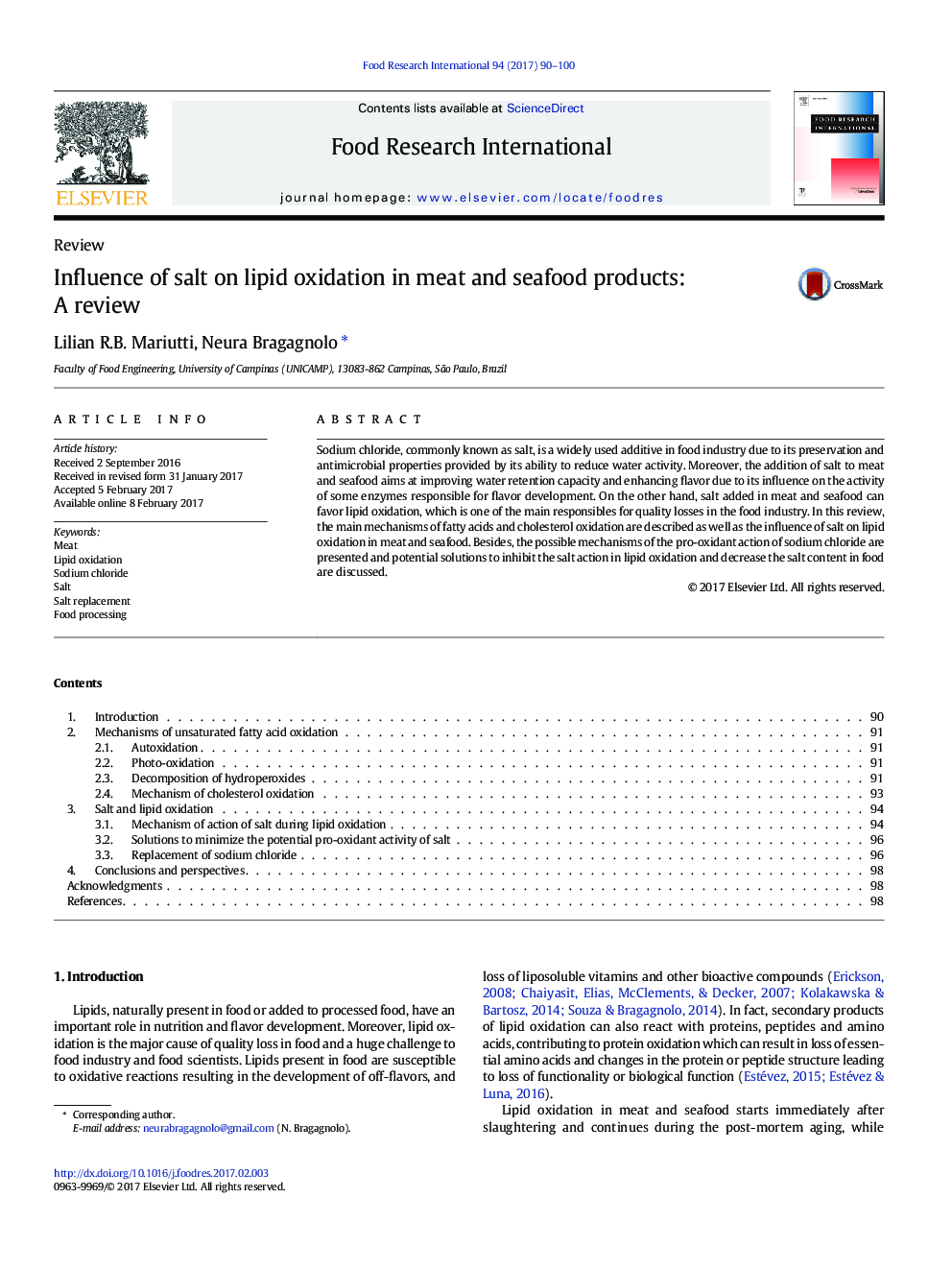| Article ID | Journal | Published Year | Pages | File Type |
|---|---|---|---|---|
| 5768277 | Food Research International | 2017 | 11 Pages |
â¢Mechanisms of unsaturated fatty acid oxidation are demonstrated.â¢Mechanisms of cholesterol oxidation are demonstrated.â¢Salt added to meat and meat products can favor lipid oxidation.â¢Possible mechanisms of pro-oxidant action of sodium chlorine are described.â¢Potential solutions to inhibit the salt pro-oxidant effect are discussed.
Sodium chloride, commonly known as salt, is a widely used additive in food industry due to its preservation and antimicrobial properties provided by its ability to reduce water activity. Moreover, the addition of salt to meat and seafood aims at improving water retention capacity and enhancing flavor due to its influence on the activity of some enzymes responsible for flavor development. On the other hand, salt added in meat and seafood can favor lipid oxidation, which is one of the main responsibles for quality losses in the food industry. In this review, the main mechanisms of fatty acids and cholesterol oxidation are described as well as the influence of salt on lipid oxidation in meat and seafood. Besides, the possible mechanisms of the pro-oxidant action of sodium chloride are presented and potential solutions to inhibit the salt action in lipid oxidation and decrease the salt content in food are discussed.
Graphical abstractDownload high-res image (187KB)Download full-size image
